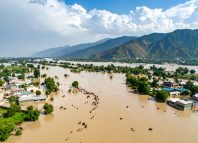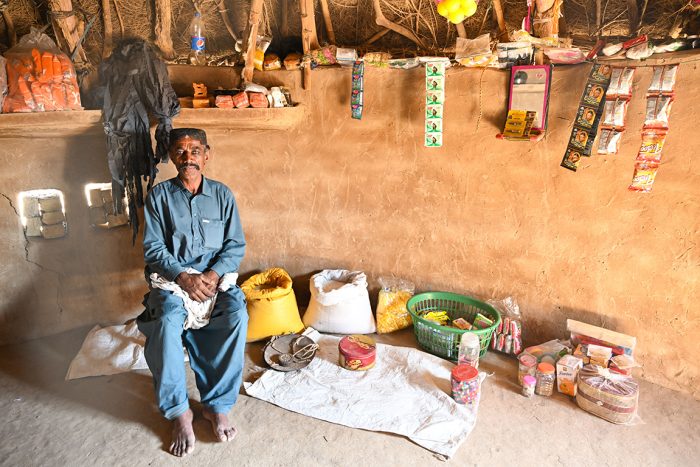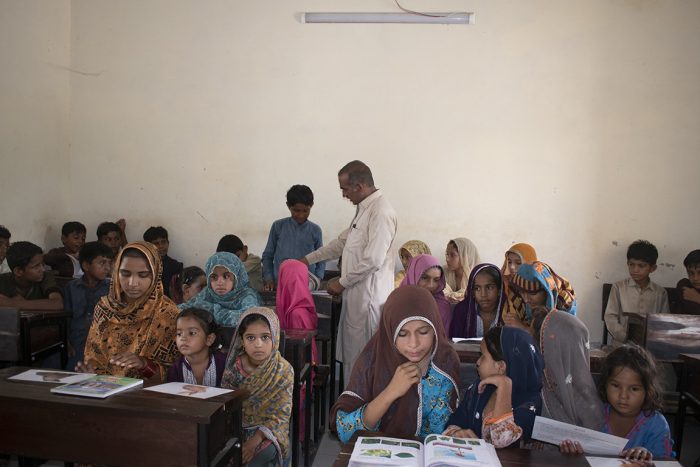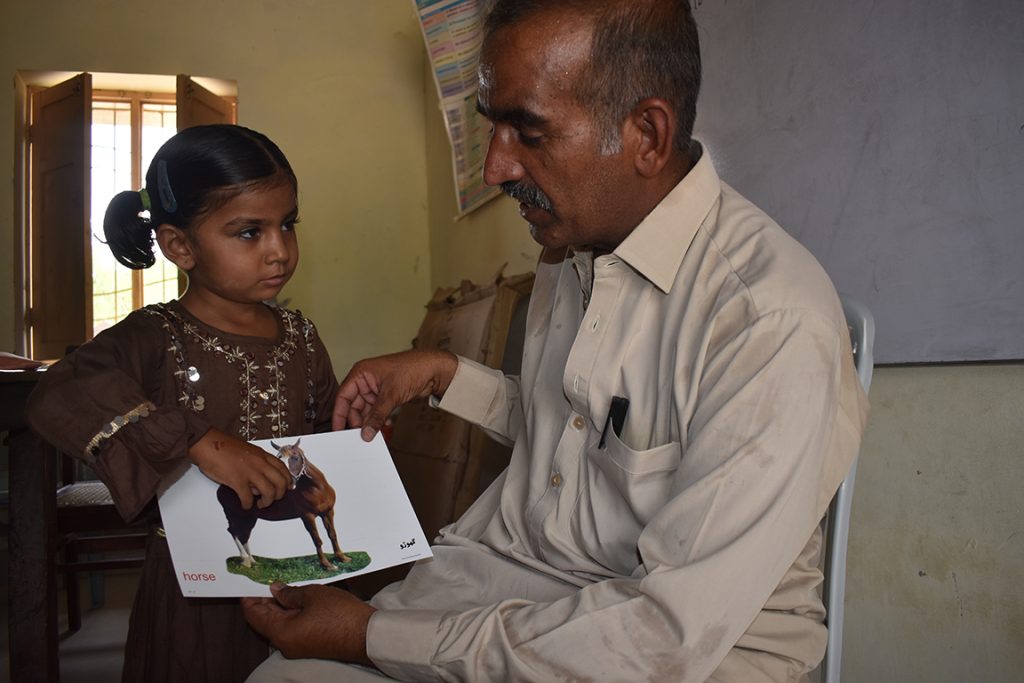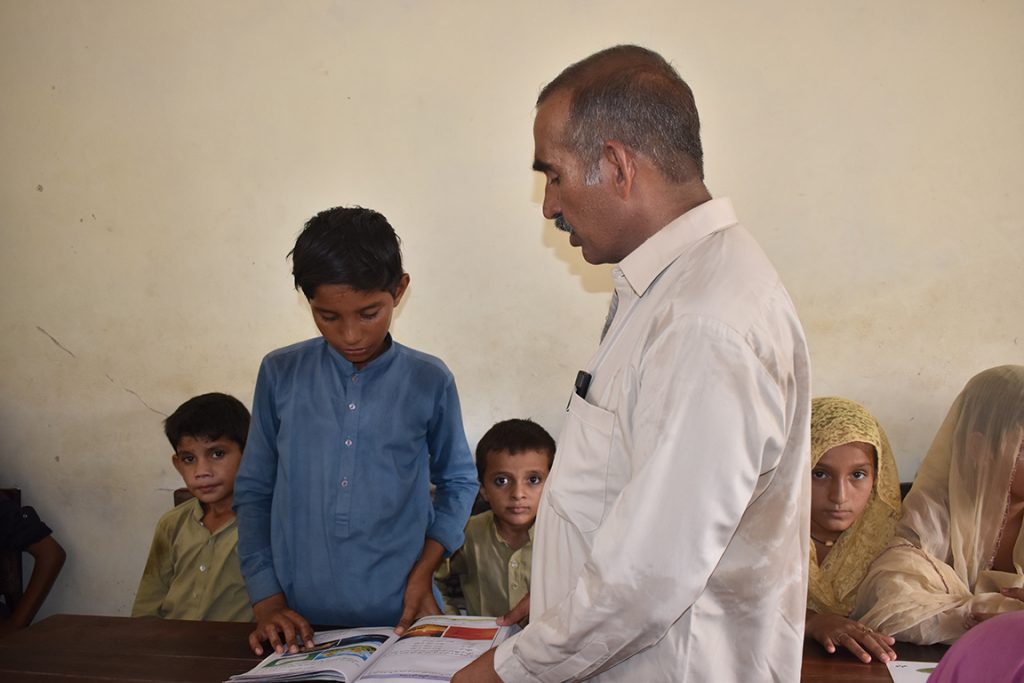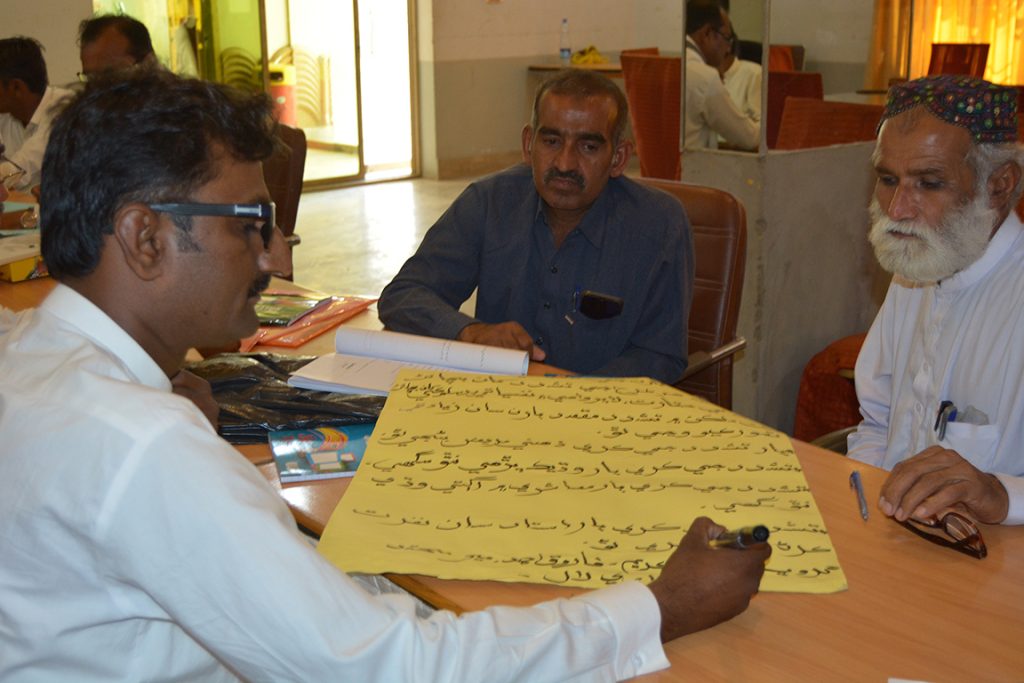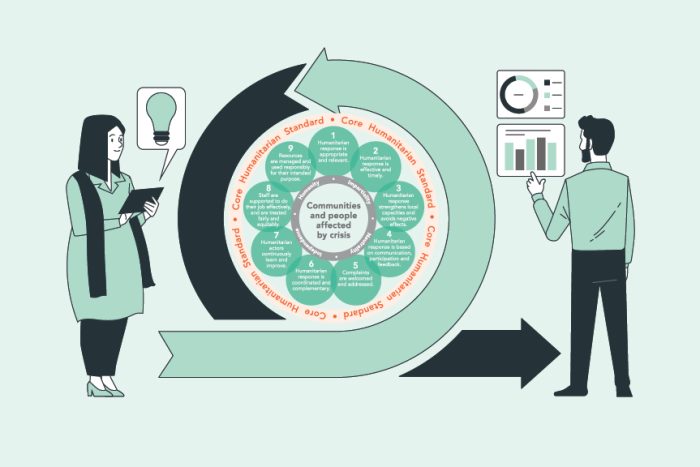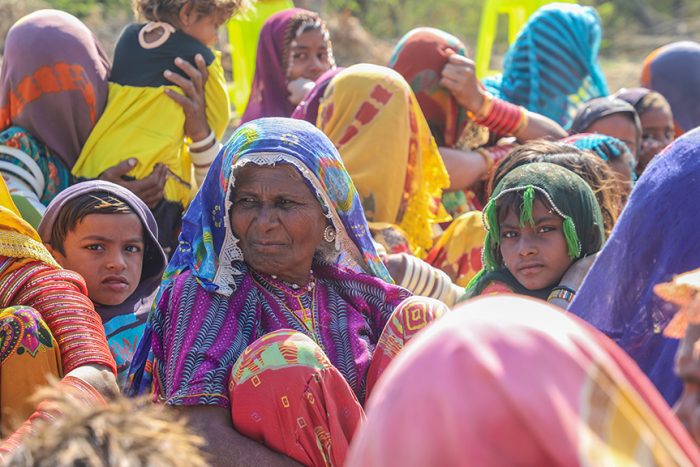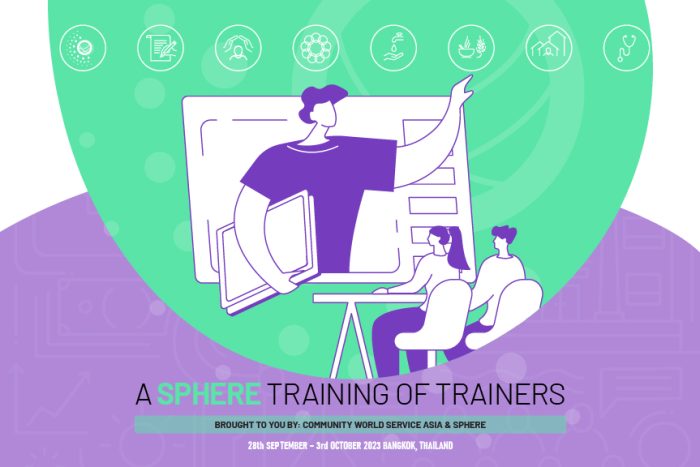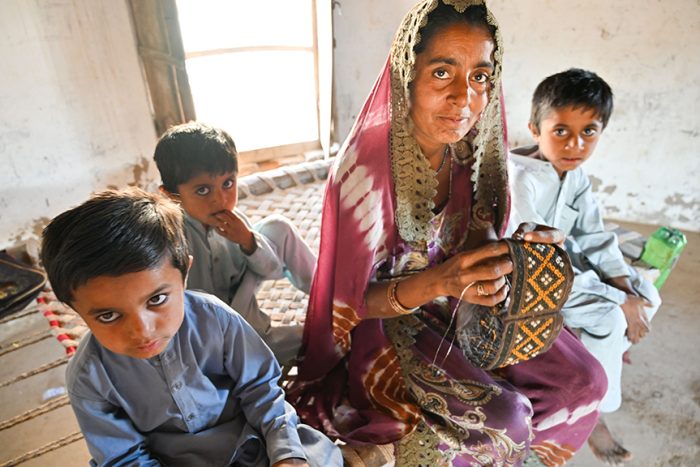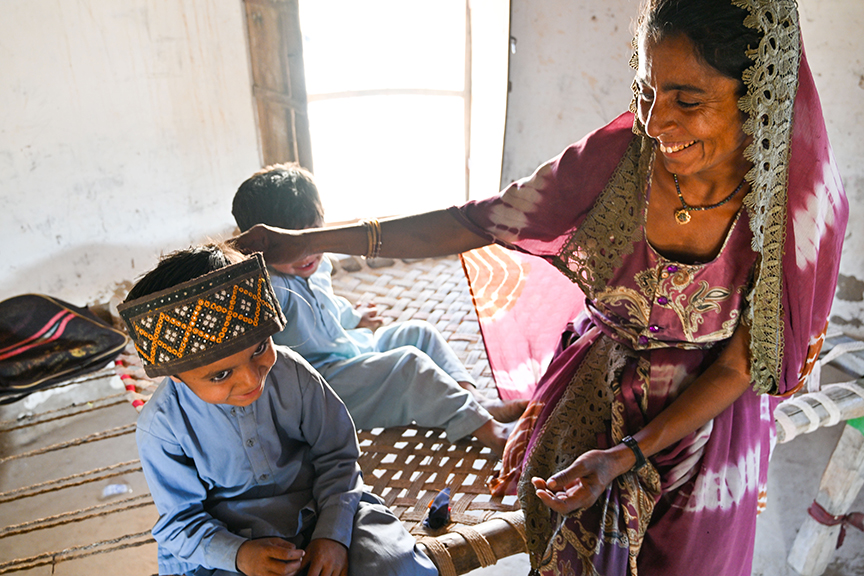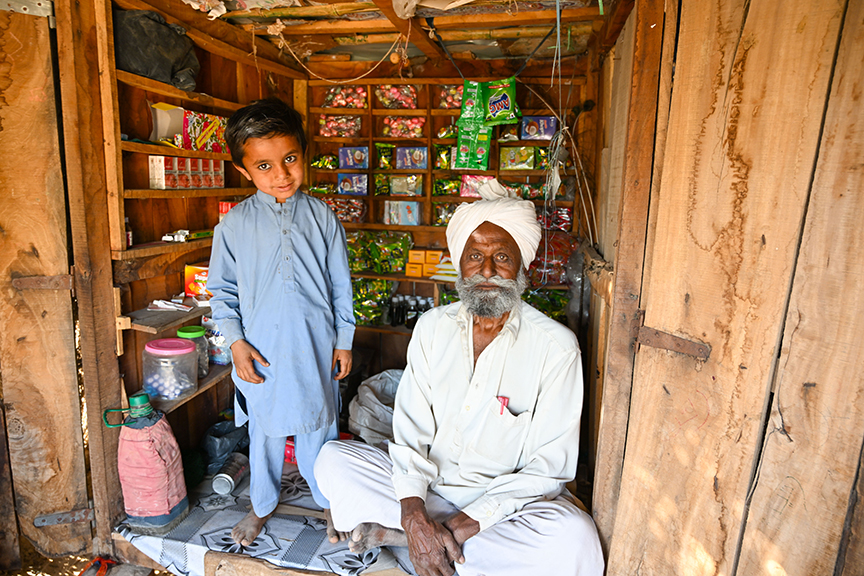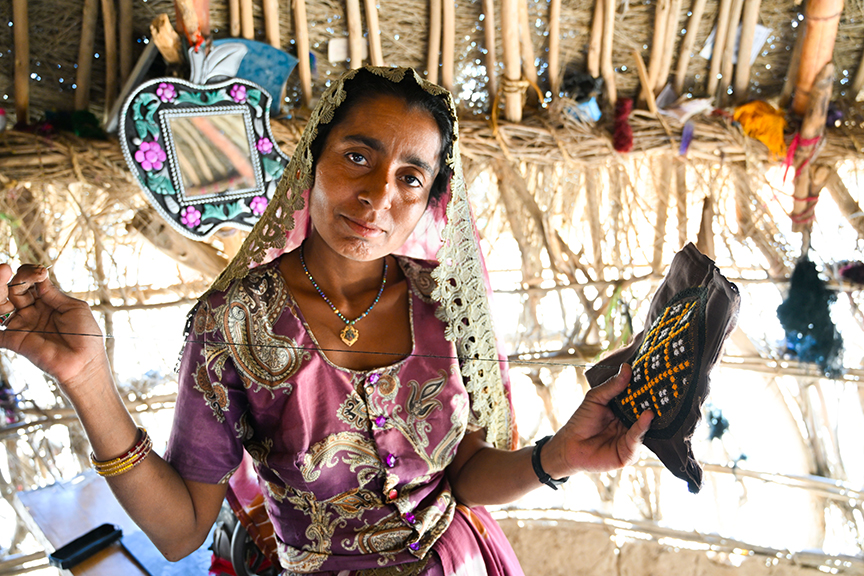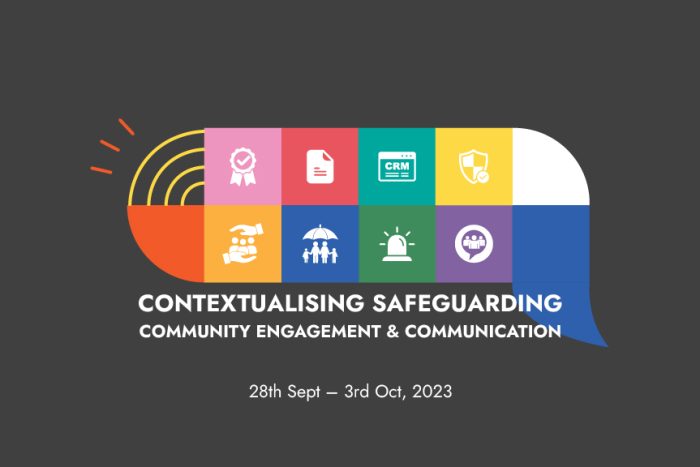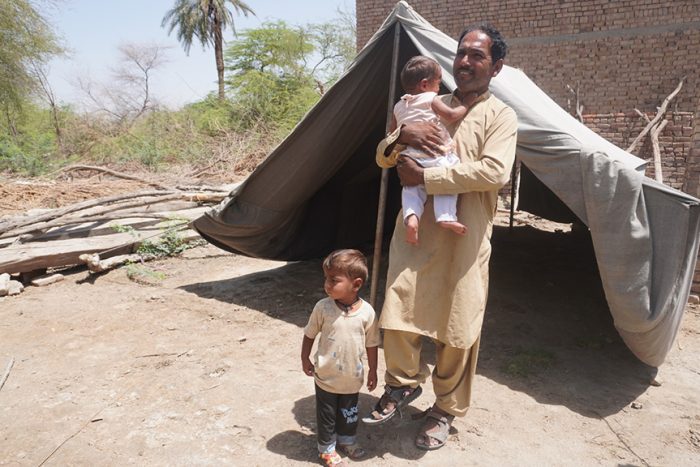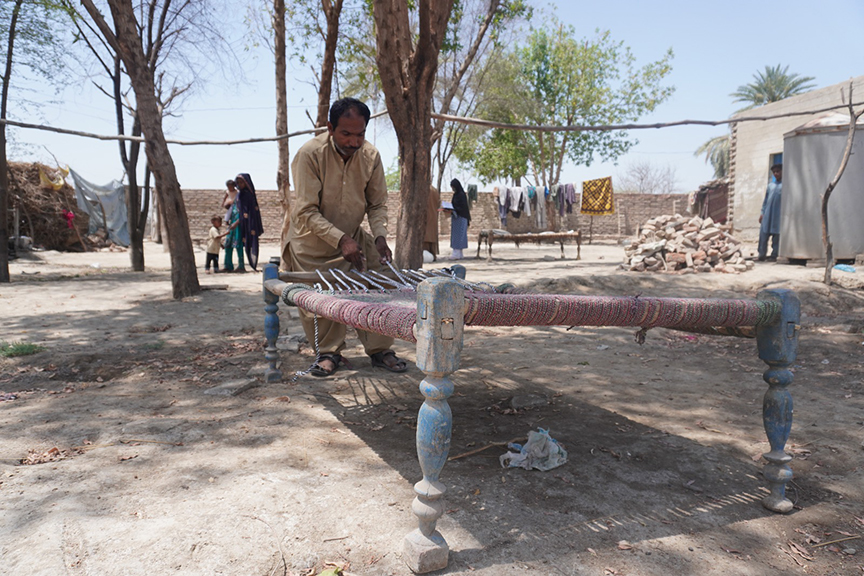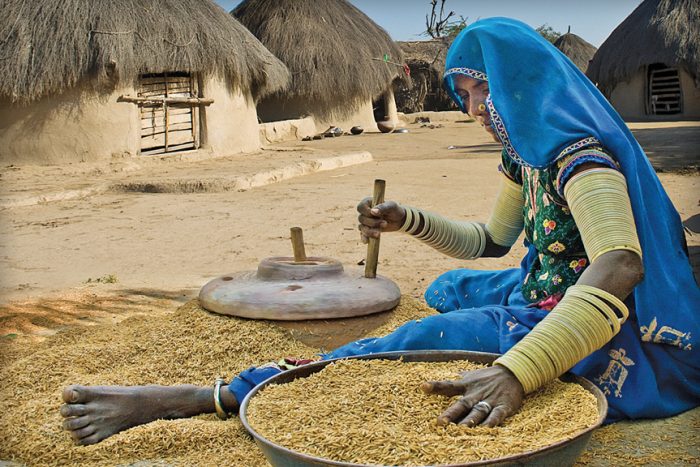When the deluge of 2022 hit village Kumbhar Bhada bringing down so many of those mud-plastered chaunras all around, Saleh Mangrio and his wife Shabana had a fall back. They salvaged what they could from their collapsing hut, particularly Shabana’s sewing machine and the large tin trunk out of which Saleh ran his small provisions and snacks store and escaped from their damaged home to another they owned that had stayed intact on a dune in the village.
With plastic sheeting protecting the snacks in his tin trunk, Saleh continued his little business. However, Shabana’s work as a seamstress suffered because in that time of uncertainty with nonstop rain teeming down and no work to be found for a community of unskilled workers, women did not want new dresses done up.
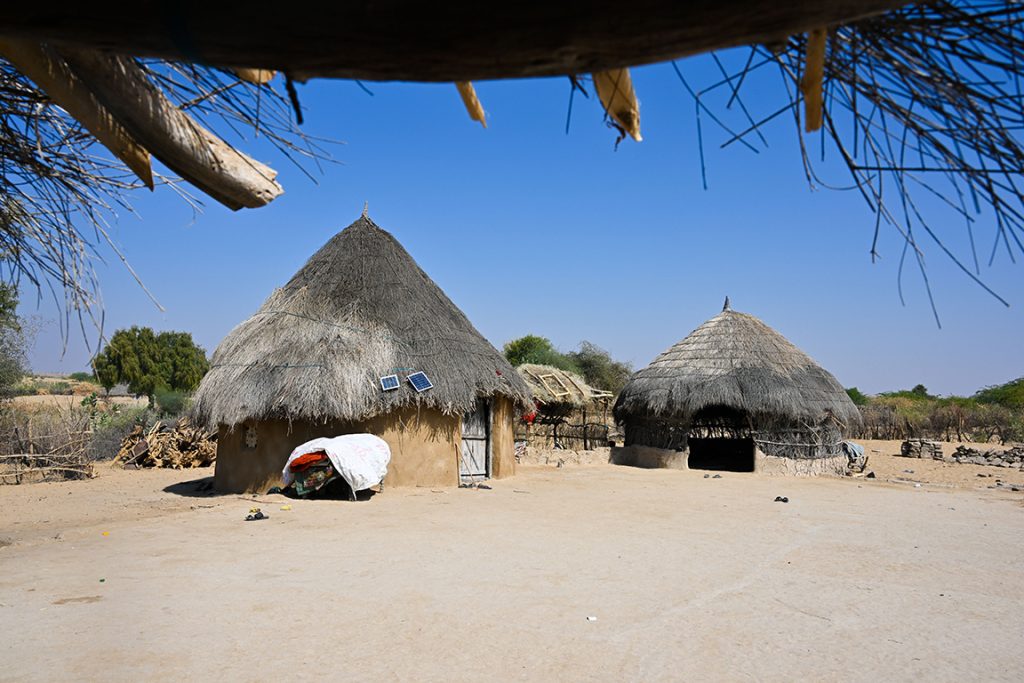
Meanwhile, in the summer of 2022, with seed provided under the Humanitarian, Early Recovery and Development (HERD), Saleh had sowed his three-acre holding with millets, mung and guar beans that he watched over with increasing anxiety as he knew the nonstop rain was likely to damage the yield. With food taken care of by the aid programme, Saleh’s primary worry as the deluge let off was for housing for the family and a place where his wife could again set up her own tailoring shop in their new location. He borrowed PKR 45,000 (Approx. USD 156) to strengthen the main chaunra, add another one, erect a thatched otaq to entertain his male visitors and even build a covered latrine.
Harvest rolled around in late October and Saleh recalled, “The harvest was not what should have been had the rain stopped after irrigating the sand. Nevertheless, it was enough for me to sell some for cash and repay my debt. And this was possible because the last two instalments of food aid took away our major worry and expense.”
His harvest was not the only commodity Saleh sold. He also had two male goats that fetched a reasonable price. Some of these proceeds serviced his debt, one part paid for a female goat and the rest was invested in the store. He reported that the store he started with stocks worth PKR 3500 (Approx. USD 12) just three years ago, was now worth PKR 16,000 (Approx. USD 56) at the end of 2022, fetching a net profit of about PKR 500 daily. He said that this investment in building his home and expanding his little store was possible only because of the food aid programme.
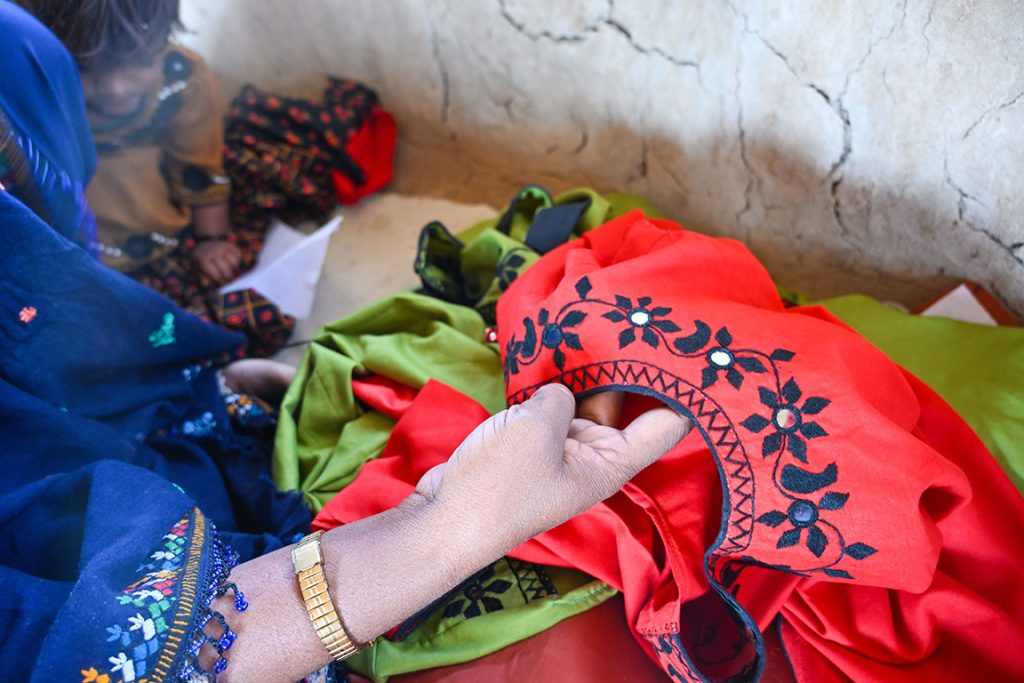
Asked what he thought was the greatest advantage of the food aid, agricultural training and input Saleh unequivocally said that it had kept him free of loan for the first time in some years.
“Normally, when crops fail and even though we recover the cost of the seed, it is loss because the reduced harvest cannot feed us. Most times we end up selling our livestock only to pay for food items. When I sold my goats late last year, I was not consuming the money but investing it in housing for the family. That was the win for us.”
The Mangrio family knows adversity as well as so many other natives of Umerkot. In 2021, he had fifteen goats, recalled Saleh. The drought was so bad that water ponds and even underground storage tanks dried up. All around the village livestock began to perish and Saleh acted swiftly to sell off five goats. The price was well below the going rate, but it could not be helped. At least he got something out of his livestock even as three of his animals perished.
But as 2023 dawned, Saleh Mangrio was happy that he still had four goats that were bound to multiply. Also, his store was fetching a little profit to pay for the daily kitchen expenses and, best of all, he was not under debt.

